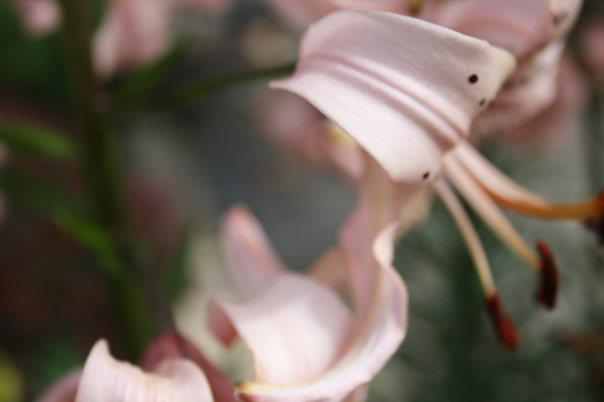"Having grown up on a farm in northern NY, I've always had a deep attachment to the natural world. My fondest childhood memories were splattered with mud and smeared with grass stains. I had space to roam and each season brought with it the most glorious sensory gifts. Spring was a passing whiff of the lilac tree on the western edge of our farmhouse. Summer exhaled sour wild strawberries and sun-scorched earth. Autumn brought musty mounds of leaves and ancient apple trees hidden in forgotten hedgerows. Winter whispered plumes of smoke from spent fires and boiling sap amongst the evergreens.
As a city dweller of late, I often find myself lost in deep nostalgia for the sensory experiences that shaped my world. This longing for connection led me to start experimenting with scent as a means to transport myself outside the city's boundaries, and into the great outdoors of my youth. Reveling in scent can be the perfect way to escape; it can bring you full blooms in a frozen tundra, fresh grass in a sea of pavement, or a lover's musk when you're all alone. I hope Thorn & Bloom Perfume can help take you where you want to go"- T&B
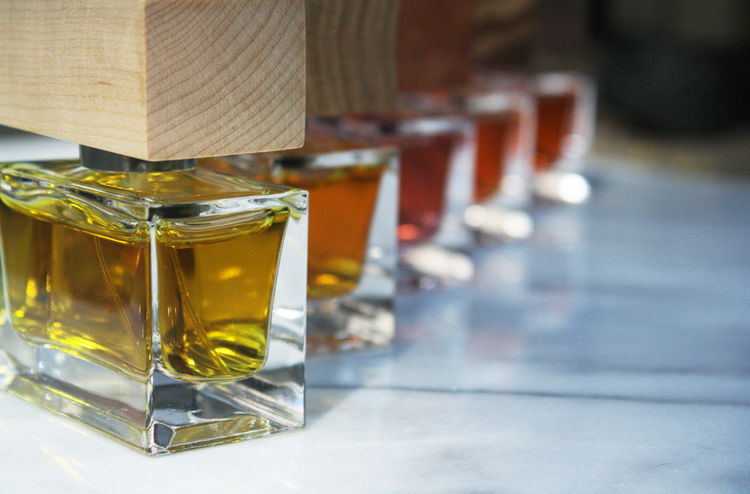
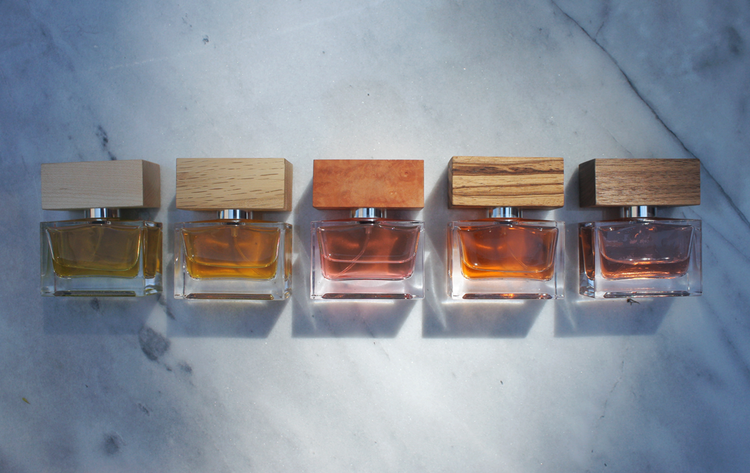
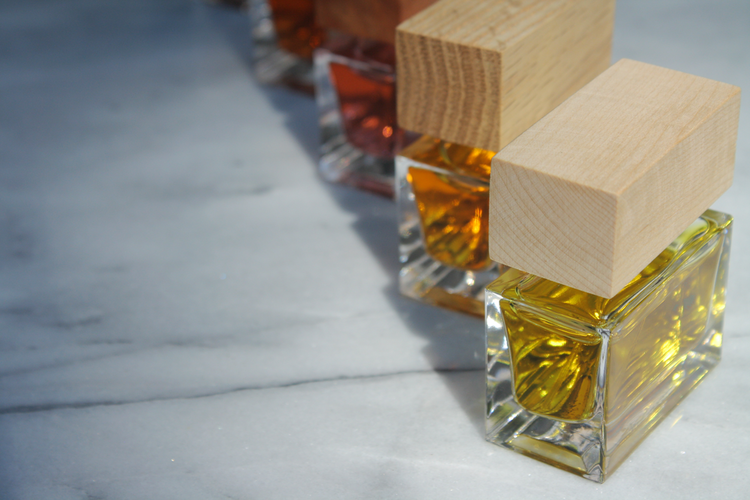
Thorn & Bloom
Artisan Botanical Beautiful
Interview with
Jennifer Botto of Thorn & Bloom
Growing up as a tomboy on a farm in upstate NY, I was lucky to have all the scents of nature at my doorstep. This instilled in me a deep connection to the sensory world and was the seed for my interest in natural perfumery. When I moved to Boston, I lost that connection to the outdoors and have been trying to get it back ever since. I studied artisan cheese making for a while, attending The Farm School in western Massachusetts.
While there, my interests shifted towards natural beauty products and I fell in love with botanical perfume. It had a power that no mass-market scent could match, a deep sensual allure that put me under its spell. Finding my signature scent in the world of naturals soon became an obsession. I bought sample after sample but couldn’t find the scent that was truly for me. This was my crossroads moment – deciding to make myself that which I couldn’t buy. I started experimenting and found that working with scent filled me with intense creative energy, something I had been missing for a long time; I was hooked. After completing Anya McCoy’s Natural Perfumery Course, which I highly recommend, I set out to become a professional perfumer.
Inspiration for the brand
Thorn & Bloom Perfume represents the dualistic nature of life and reminds us to embrace both imperfection and beauty. Natural perfume is very yin and yang, as it contains ingredients that may be considered an acquired taste by some, and also gorgeous aromatics that cannot be replicated as synthetic. In this way, Thorn & Bloom Perfume celebrates the holistic nature of botanical perfume and reminds the wearer that when experienced together, imperfection and beauty can be very powerful. To quote Anne Brontë:
Process for creating perfume
When I brainstorm ideas for a new formula, I try not to have a very specific end goal in mind. I know that many perfumers will write a very detailed brief or create a piece of art from which to draw inspiration. Personally, I don’t like limiting myself to strict guidelines and prefer to start off with a very broad and flexible framework. For instance, I’ll simply think green or smoky. This allows the aromatics to take the lead and show me which direction they want to go. I prefer to relinquish control over to them and listen to what they’re telling me. I feel that they are ultimately in charge of how the blend is going to smell and I am there as a vehicle to make sure the blend is a success. Sometimes I’ll end up with a blend very far from what I originally intended to make, which I love because it reminds me that I am not the master of these ingredients. When I sit down to blend I look at all my aromatics and think “ok, what do you want to smell like today?”.
I take a lot of inspiration from Georgia O’Keeffe. Her examination of flowers for painting is very similar to how a perfumer studies aromatics for blending. She would move in close to see a flower’s intimate curves and became very familiar with her subject. I grew up very near-sighted and remember having to wear these huge terrible glasses on my little face. Finding them such a bother, I’d tear them off and wander around near blind. I remember crouching down to see this newly magnified world and marveling at the minute detail and rich depth of field. Perfuming, for me, is a continuation of this ritual. It allows me to inspect and appreciate the world in a very up-close and personal way.
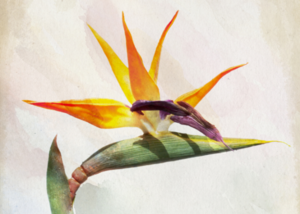
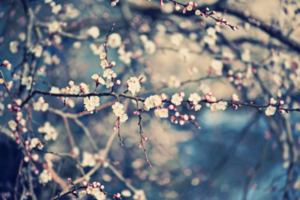
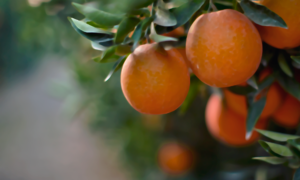
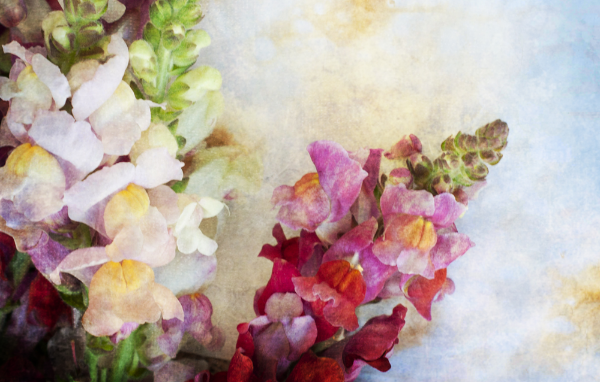
“When you take a flower in your hand and really look at it, it's your world for the moment. I want to give that world to someone else. Most people in the city rush around so, they have no time to look at a flower. I want them to see it whether they want to or not.”-Georgia O'Keeffe
“Nobody sees a flower really; it is so small. We haven't time, and to see takes time - like to have a friend takes time.” -Georgia O’Keeffe
What does being natural mean for those who wear my scents?
I love how delicate natural perfume can be. Fashion critics often speak of a garment wearing the wearer if it is too garish or overwhelming. I often think in those terms regarding fragrance. Too often, we drown ourselves in overpowering mass-produced perfume, creating clouds of scents too wide and too strong. Natural perfume is just the opposite. It beckons for close proximity and is a very personal experience. It will not intrude into others’ personal space, nor will it linger on your clothes for 24 hours.
I like to remind my customers that natural perfume is an agricultural product and may experience a subtle change in formulation or price from year to year, depending on the growing conditions of the aromatics. Much like wine in this way, botanical fragrance can display a degree of terroir; just as Merlot grapes can exhibit a varied flavor profile from year to year, Roses will display similar nuances over time depending on the weather. Knowing this, we should approach the fluidity of natural perfume not as a curse, but as a gift that represents nature’s ingenuity. After all, the changes reflect a plant’s reaction to its environment. A plant cannot physically move to better conditions and, so, uses aromatic compounds to defend itself against predators or to attract pollinators. When we bottle a perfume, we are capturing the quintessence of that plant’s life; when we sniff a perfume, we are experiencing it’s life story.
Where do I see fragrance industry in next 5 years, what would I like to see happen
I see more and more artisan perfumers cropping up, both natural and synthetic. Consumer tastes are trending towards the local, handmade, exclusive market, which is a wonderful thing for artists and makers. I’d love to see more organic growing methods for aromatics, as currently there aren’t a lot of options for purchasing only organic ingredients for a 100% truly organic perfume. While I enjoy offering natural perfume to consumers, I’d really prefer to give them a certified organic perfume that supports sustainable agriculture.



